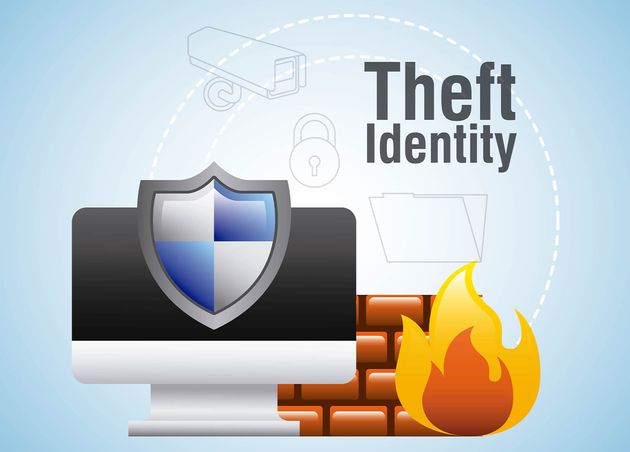
Understanding Firewalls: The Unsung Heroes of Internet Security
In the world of digital security, a crucial guardian known as the firewall stands as a strong guardian at the junction between a remote private network and the vast expanse of the Web. The firewall is crucial for protecting against unwanted intruders and harmful attacks.
At its core, the firewall embodies a significant function—filtering and directing the constant flow of network traffic, both inbound and outbound, guided by a carefully planned set of security rules. 
Without a doubt, the firewall is super important because it works smartly. It takes apart approaching bundles of digital data with the precision of a skilled artist, meticulously examining every piece of information using a set of rules.
These rules are like a border between what's allowed and what's not, guiding how the firewall works with a good understanding of digital stuff. Think of the firewall as a guard – it controls who can go in and out, ensuring the good guys get through while keeping the bad ones out.
Different Types of Firewalls
Firewalls are an integral component of modern network security. They manifest in diverse forms, each tailored to address specific cyber threats and shield digital ecosystems. Within this diverse domain, several prevalent types of firewalls stand out, offering varying protection and security features.
Let's delve into the intricacies of these common firewall variations and explore their unique attributes that fortify our digital landscapes.
#1 Packet Filtering Firewalls
At the foundational level, we encounter Packet Filtering Firewalls. These sentinels stand guard at the router level, diligently scrutinizing packets of data traversing networks. These firewalls make swift decisions to permit passage or impose a steadfast blockage using a predefined set of rules, including source and destination IP addresses, ports, and protocols.
#2 Stateful Inspection Firewalls
Elevating the security paradigm, Stateful Inspection Firewalls exhibit enhanced awareness. These guardians meticulously monitor active connections' dynamic "state" or context. Armed with this contextual intelligence, they judiciously assess and determine which packets deserve the privilege of crossing the network barrier. This approach, involving a transient perspective rather than analyzing isolated packets, fortifies the network's defenses.
#3 Proxy Firewalls (Application-Level Gateways)
Analogous to discretionary intermediaries, Proxy Firewalls—also known as application-level gateways—assume the role of intermediaries between users' devices and the vast expanse of the Web. Each piece of traffic embarks on a journey through these gatekeepers, undergoing a process known as "proxying." This clever move thwarts any direct linkages between the internal and external networks, adding an extra layer of security.
#4 Next-Generation Firewalls (NGFWs)
The vanguard of modern cybersecurity, Next-Generation Firewalls embody the fusion of tradition and innovation. These fortified strongholds seamlessly integrate traditional firewall technology with advanced functionalities. Among their impressive capabilities are Intrusion Prevention Systems (IPS) and heightened application awareness. This dynamic combination responds efficiently to the ever-evolving threat landscape.
#5 Software Firewalls
Software Firewalls represent a personalized line of defense emerging from within the confines of individual devices. Installed directly onto devices like computers and smartphones, these vigilant defenders take control over inbound and outbound network traffic. This localized fortress guards against insidious threats from within the network it seeks to protect.
#6 Hardware Firewalls
In the area of substantial shields, Equipment Firewalls arise as sturdy watchmen. Whether as standalone entities or seamlessly integrated into network devices like routers, these gatekeepers extend their protective embrace across an entire network. Their comprehensive defense mechanisms safeguard every connected device, ensuring a unified and impervious defense against potential threats.
💻 Tech Fact
A firewall serves as a network security system, overseeing and regulating incoming and outgoing traffic according to established rules. Its primary function is safeguarding computer networks from unauthorized access, viruses, and potential malicious threats.
Effective Firewall Protection at Home
For most people, their initial introduction to the concept of a firewall likely occurs through the encounter with the firewall embedded within their router, comprising a variation of a hardware-based firewall. These router-installed firewalls hold significant prominence in security, meticulously sifting through and blocking inbound data traffic originating from the vast extent of the Web, thereby fortifying the defense of your private network. While most contemporary routers are equipped with built-in firewall capabilities, practicality dictates the verification and activation of this crucial feature.
Additionally, for home-based users, software firewalls introduce an additional and crucial layer of defense, which can be seamlessly integrated within the operating system or used as a standalone third-party application. Such software firewalls work with their hardware counterparts, forming a formidable combination of security to thwart potential digital intrusions.
Windows and MAC OS X Built-In Firewalls
Both the Windows and Apple OS X operating systems come equipped with their native firewalls, serving as integral components in safeguarding your digital environment. For Windows enthusiasts, the Windows Defender Firewall has stood as a fundamental consideration since the era of Windows XP SP2. This robust firewall adeptly filters through incoming and outgoing network traffic and keeps a vigilant watch over applications attempting to access the network, thereby adding an extra layer of defense.
Similarly, Apple's OS X proudly features its integrated firewall, accessible within the Security and Privacy section of the System Preferences. Reflecting the capabilities of its Windows counterpart, the OS X firewall diligently works to scrutinize incoming connections, promptly blocking those deemed unnecessary or potentially malicious.
While undoubtedly providing a solid security foundation, these embedded firewalls may encounter limitations when confronted with the nuanced demands of advanced users or organizations with complex network structures. Therefore, the sophisticated functionalities and meticulous control that such power users or enterprises seek may potentially lie beyond the scope of these bundled firewall solutions.
Third-Party Firewall Options
If you find yourself searching for expanded capabilities or specific functionalities that extend beyond the inherent offerings of your operating system, a rich array of third-party firewall solutions awaits your consideration. These solutions are available for both Windows and Mac platforms, catering to the diverse needs of users. Prominent and longstanding names in this domain include Norton, ZoneAlarm, GlassWire, and Comodo Firewall.
These third-party firewall solutions often come bundled as comprehensive packages, offering a broader spectrum of security solutions that extend beyond basic firewall functionality. Such solutions can include robust antivirus protection and proactive malware scanning, enhancing the overall protective umbrella for your digital environment.
However, it's important to note that these extended security measures typically come at a cost, setting them apart from the cost-free native options provided by your operating system. This financial investment reflects the comprehensive nature of the offered protections and the additional layers of security they bring.
Nevertheless, due to their more complex operations, these third-party solutions could occasionally subtly impact system performance. This impact on performance is a trade-off to consider as you weigh the benefits of heightened protection against potential resource usage.
💻 Tech Trivia
The first firewall was developed in 1982 by a computer science graduate student Bill Cheswick. He called it the "firewall" because it acted as a barrier between two networks, preventing unauthorized traffic from crossing the boundary.
In summary, firewalls emerge as a fundamental cornerstone within the intricate framework of every robust security system, transcending their significance from individual private users to the vast domains of sprawling global enterprises. Through their adept handling of network traffic and skillful thwarting of unauthorized access, firewalls consistently play the role of vigilant guardians, unwaveringly upholding the sanctity and integrity of your virtual presence.
However, it is crucial to fully grasp that while a firewall plays a significant role, it exists as just one piece within the giant mosaic of a comprehensive security plan. A dynamic and layered approach is essential, encompassing a spectrum of proactive measures. This involves regular software updates to keep pace with evolving threats and the secure fortification of intricate, superior passwords. Through this multifaceted interplay of security efforts, the steadfast resilience of a digital fortress is built.
Tech Bear



















